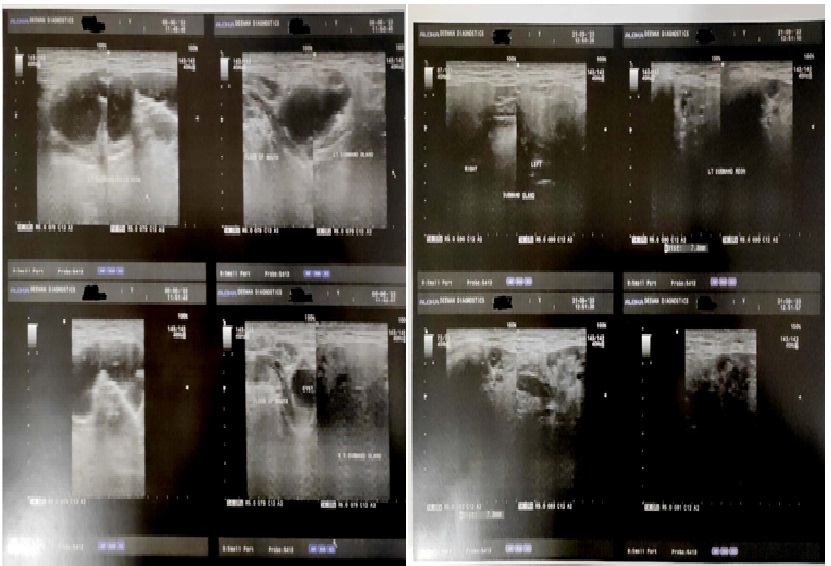Unraveling the Ayurvedic Protocol in the Management of Ranula
Abstract
Shalakya tantra is the branch of Ayurveda which deals with Urdhwajatrugata rogas i.e., diseases occurring in supraclavicular region. Acharyas have mentioned various Mukharogas (diseases pertaining to oral cavity) which are further subdivided into various categories. Acharya Sushruta has mentioned five Jihwagata rogas (diseases of tongue) and their management. Upajihwika which is caused by vitiation of Kapha and Rakta, is the Jihwagraroopa shwathu cystic swelling under the ventral aspect of tongue. In modern, it can be correlated with Ranula which is a translucent swelling in the floor of the mouth formed due to sublingual gland trauma or obstruction of the ducts. It further leads to extravasation and accumulation of saliva in the surrounding tissue thus forming a cyst. Case and Intervention- A 49-year-old male patient presented to ENT OPD of Patanjali Ayurveda Hospital with swelling in left submandibular region for 2 months. There was no difficulty in mastication and swallowing with no history of trauma. The patient was diagnosed with plunging Ranula sized 4x3 cm based on USG findings. He underwent three months and 10 days course of Ayurvedic regime and two follow ups showing reduction in size of the cystic swelling. Conclusion: Several surgical techniques have been introduced to treat Ranula ranging from marsupialization, excision of Ranula, excision of sublingual glands, sclerotherapy with varying success and recurrence rate. Ayurvedic protocol aimed at holistic approach by pacifying the vitiated Doshas and showing marked regression in the cystic growth without making the patient undergo the pain and high cost and adverse effect as that of a surgical procedure.
Downloads

Copyright (c) 2024 International Journal of Ayurveda and Pharma Research

This work is licensed under a Creative Commons Attribution-NonCommercial-ShareAlike 4.0 International License.






